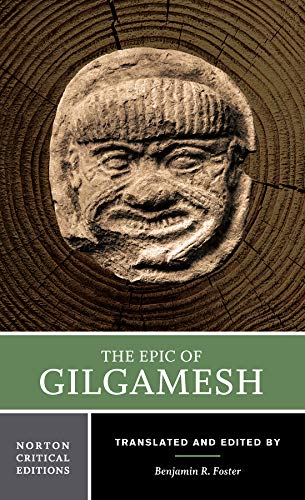

It is often observed in modern scholarly works that humans, in the Babylonian Flood narrative of Atrahasis, and the creation myth of Enuma Elish, were born to serve the gods and perform their menial tasks.

While deities and supernatural creatures have a prominent role in literature, Mesopotamian myth is not only concerned with theistic matters, but also with what it means to be human. Religious ideas are expressed in a wide array of Mesopotamian literary works, and while some features, such as the polytheistic view of the divine hierarchy, remain generally constant, different texts and " genres " show changes in focus and in the perception of the divine and the human. In both oral and written transmission, storytelling is a powerful medium for exploring ancient theology. Through the use of plot, characterization, literary themes and techniques, and also structure, Mesopotamian myths and epics transmit religious ideas and beliefs, as well as informing on cultural identity and meaning. The Epic Of Gilgamesh Benjamin R.Concepts of religion and humanity form an integral component of Mesopotamian narrative literature, and these ideas are evidenced in the frequent exploration of themes involving mortality and immortality, power and authority, and creation and destruction.Gilgamesh definitely had too many heroic qualities that were The idea of death really hit him after Enkidu because he realized that death is inevitable, no matter how prideful you are or how much you achieve, it is still going to happen.

For instance, he stated, “Enkidu, my friend whom I loved, is turned into clay! Shall I too not lie down like him, and never get up forever and ever?” (78). But, after his death, Gilgamesh still showed his flaw of being self-righteous because he felt that he deserved eternal life because he was part god. This shows that Gilgamesh really enjoyed and appreciated Enkidu as a friend, and even after his death, he did everything possible to make sure that he was recognized and respected. His loyalty to his friend, Enkidu, is also very obvious, especially after Enkidu passed away, when Gilgamesh “Slaughtered fatted and sheep, heaped them high for his friend” (62). This shows that he would always continue with what he started and that he was not one to give up on what he says he is going to do. Furthermore, you can see Gilgamesh’s perseverance when he finds out that the outcome of his journey is not favorable, but he still continues to go after praying to Shamash (26). Gilgamesh was a great man and was seen as flawless and “perfect in …show more content…īecause of his pride, he does not listen, which is one of his biggest flaws in the story. Although these are heroic traits, he also had his flaws and was self-righteous, selfish, and prideful. Gilgamesh was considered a hero because he had many great qualities, such as loyalty, perseverance, and heroism. In the book, The Epic of Gilgamesh, by Benjamin Foster, both Gilgamesh and Enkidu had positive and negative characteristics that affected the outcome of their journey and their adventures they experienced throughout their lives. No matter who they are, or how perfect others think they are, people still have some negative qualities that can hurt their heroic ones. Everyone has qualities that are heroic and noble, and everyone has their flaws.


 0 kommentar(er)
0 kommentar(er)
